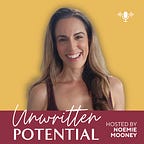Last year, I did something shocking: I stopped therapy. Not because I was magically healed, but because I’d become tired of constantly looking inward. Every moment needed analysing, every feeling required processing, and I’d forgotten how to just exist. That’s when I realised something crucial: maybe the problem isn’t that we’re not trying hard enough. Maybe we’re trying too hard.
The Wellness Industry Paradox
Here’s what keeps me up at night. We’re spending 6.8 trillion dollars globally on self-improvement, yet 82% of employees are at risk of burnout. The wellness industry is booming while our actual wellbeing collapses. This isn’t coincidental. It’s what researchers call “the curse of constant self-optimisation”, and it’s destroying us from the inside out.
I know this intimately. I spent 500 Singapore dollars on a fancy Garmin smartwatch after weeks of research. It tracked everything: sleep stages, stress levels, body battery, VO2 max. The constant data stressed me out so much that I ended up using it for basic step counting. Things a twenty-dollar watch could do.
The trap works like this: you spot a flaw, anxiety kicks in, you find a solution, get temporary relief, then immediately scan for the next thing to fix. This isn’t growth. This is anxiety management disguised as productivity.
When Hustle Culture Wears Therapy Language
Here’s the uncomfortable truth: hustle culture didn’t die during the pandemic. It just learned to speak therapy language. Meditation apps gamify inner peace with streak counters. Morning routines become rigid optimisation protocols. Rest gets rebranded as “recovery” so we can justify it. Hobbies transform into side hustles because apparently we can’t do anything just for fun anymore.
We’re literally buying programmes to teach us how to stop buying programmes. The irony would be funny if it wasn’t so depressing.
Breaking Free: Healthy Growth vs Toxic Optimisation
Growth isn’t the problem. The problem is how optimisation culture has hijacked healthy practices. Toxic optimisation ties your worth to productivity, makes rest impossible without guilt, and pursues goals from shame. Healthy growth aligns goals with your actual values, combines self-compassion with self-improvement, and treats rest as necessary, not something to earn.
The most radical act of self-improvement? Sometimes it’s improvement by subtraction, not addition. What would you do differently if you stopped treating yourself like a broken thing that needs fixing?
3 Key Takeaways
1️⃣ Learn the difference between toxic optimisation and healthy growth. Next time you set a goal, pause and ask: Is this coming from self-compassion or self-punishment? Is this aligned with my values or just what I think I “should” do? That question changes everything.
2️⃣ Recognise when hustle culture is wearing therapy language. If your wellness routine requires a spreadsheet, it’s not wellness. If you feel guilty skipping one day, that’s pressure, not self-care. If you’re optimising sleep but losing sleep over the optimisation, you’ve spotted the problem.
3️⃣ Try the practice of stopping. Pick one tracking app, one “should”, one wellness practice creating more stress than benefit. Stop it for a week. See what happens. You’re not abandoning growth, you’re creating space to figure out which goals are actually yours.
Join the Movement!
If you enjoyed this episode, you’re going to love my newsletter! I dive deeper into these topics and share exclusive tools, guides, and behind-the-scenes insights that I don’t share anywhere else. It’s like getting your own coach in your inbox every week. Subscribe to join our community to get unstuck, grow and unleash your Unwritten Potential!












